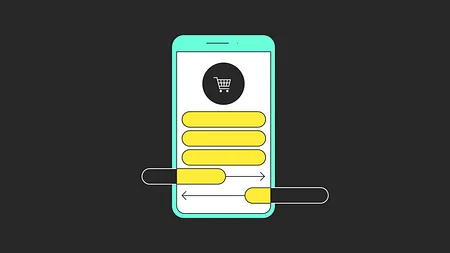The fintech market is saturated. How do you differentiate?

Markets, from the UK through to Hong Kong and the US, have become highly competitive. With more choice than ever before, how do you make your proposition stand out?
In the UK consumer market, challengers like Monzo, Revolut and Transferwise have gained a strong foothold in terms of customer growth, valuations and general brand equity.
The number challengers in the SMB market have increased rapidly in the past couple of years too. There has been significant private investment in this market and the RBS Remedies fund will accelerate the growth and expansion for those winning the pots of funding.
Other markets around the world are beginning to accelerate too. Hong Kong is leading the South East Asian markets by issuing virtual banking licences with Singapore and Taiwan following suit. Australia is following something close the UK model, encouraging competition and innovation through open data and APIs. There's lots of activity in the US from big tech, fintechs with some serious VC backing and incumbent players.
If you're a challenger just starting out or thinking about entering the market how do you differentiate from existing fintech? What were once revolutionary features like card freezing, real-time balances, budgeting tools and notifications are now table stakes.
Understand the Market Dynamics
Context is everything when it comes to understanding what customers want. Understanding the historical precedence, cultural forces and resonance of existing competitor propositions both inside and outside financial services are key.
Each market is defined by what preceded it. The shape and maturity of the financial infrastructure have a huge bearing on the expectations and needs of customers in that market. For example, a lot of South-East Asian markets have been largely cash-based until recently, which has led big tech in that region to pioneer digital payment methods to facilitate digital commerce through smartphones.
In the US, the lack of a faster payments network has led to the appeal of peer to peer payment platforms like Venmo. It's fair to say that each market has its own starting point so it's going to be fascinating to see how some of the UK fintechs handle the historical and cultural differences of the international markets they are expanding into.
What were once revolutionary features like card freezing, real-time balances and notifications are now table stakes
Furthermore, understanding how customer demand changes when new supply (competitors) enters the market is really important. When customers are exposed to new services they quickly become accustomed to them. They can now make positive change in their lives that they previously were unable to do. This shifts the whole market forward the drivers of demand in the market change.
In a market rapidly re-inventing itself it's critical to stay on top of the shifts in the market regarding how customers prioritise the financial jobs they're trying to get done. We have data to prove this too. In the UK, the most advanced market in terms of the maturity of fintech, we can see what were once underserved Jobs to be Done becoming hygiene factors. The expectations of a growing number of customers who've adopted fintech services have been reset.
New Jobs to be Done become areas of growth for fintechs as customers are now able to do more with their money and time. You can read more about this in 11:FS’s PFM report.
Identifying Partnerships
A classic Jobs to be Done analysis will identify who your product or service really competes with. If your product was not available what would a customer use instead? Asking that question reveals some amazing insights as to who your real competitors are.
Hint: they're probably not who you expect them to be.
This analysis reveals the job your product is being used for and helps define a strategy to compete more effectively. This analysis can also begin to identify partnership opportunities too. In the digital ecosystem of 2019, success can be found by conducting the orchestra rather than playing all the instruments yourself.
Money is more often than not an enabler to something else, rather than an end in and of itself. Therefore, those operating in financial services should be looking to connect into other areas of customers lives.
If your product was not available what would a customer use instead?
Money helps us buy a home, go on holiday, fund higher education, get married... the list goes on. Western markets are heavily financialised, which means that customers have a lot more basic money management jobs to be done than customers in the East.
Financial services in the East are either integrated with super apps (which do everything from messaging to hailing cabs) or new virtual banks partnering with retailers, telcos or other brands in different industries (see the announcements by the eight new virtual banks in Hong Kong, for example). These are great examples of fintechs aiming to help customers do more with money and create new value in important areas of their lives.
There is definitely room in Western markets to orchestrate more partnership deals. It will enable propositions to be designed around end-to-end journeys that are relevant to customers everyday lives, and importantly for financial services brands, it will help to differentiate in an increasingly noisy market.
Becoming culturally relevant
Some of the new digital challengers in fintech have done a great job redefining how banks speak to their customers, however, there is still a lot more to be done. Brands that can decode cultural trends can align their propositions with meaningful areas of customers lives will be able to differentiate much more effectively. This is more than just saying you’re "revolutionising banking" or that your proposition is focused on sustainability.
I think Swell identified an underserved job in the market - customers wanting to invest their money in a sustainable and ethical way - but I don't think they had a strong enough narrative and connection with the big issues that surround this space.
It's more than just saying you’re "revolutionising banking" or your proposition is focused on sustainability.
If we look at non-financial brands like Patagonia, they sell sustainable products but their brand connects with the issues of minimalism and environmentalism. Customers buy the product to fulfil a job to be done but they buy the brand to believe they're making a positive impact on the world.
Nike's marketing is extremely brave and connects and shapes culture. What gives Nike the right to successfully sell branded hijabs to Muslim women? It's because they understand and connect with the latest trends in modern Muslim feminism.
Why is Nike still able to be super relevant to a young urban audience? Because it connects with the issues that matter most to youth culture. Supporting Colin Kaepernick was a masterstroke of marketing. History will look extremely favourably on Kaepernick and the wider protest movement around racial injustice. Nike is, and will continue to be, strongly associated with that.
On purpose, with purpose
Differentiation comes from having a purpose. A purpose that is not just metaphorical but a purpose that is so strong you cannot disentangle culture from the brand. The brand becomes a metonym or a verb of the most important and meaningful parts of your customer's lives.
Fintech has a long way to go to reach these kinds of levels of sophistication but this is the leap they need to make to drive growth and continue to differentiate and disrupt.
To find out more about how Jobs to be Done can be used by your organisation to design and build truly differentiated services customer will love, get in touch.



